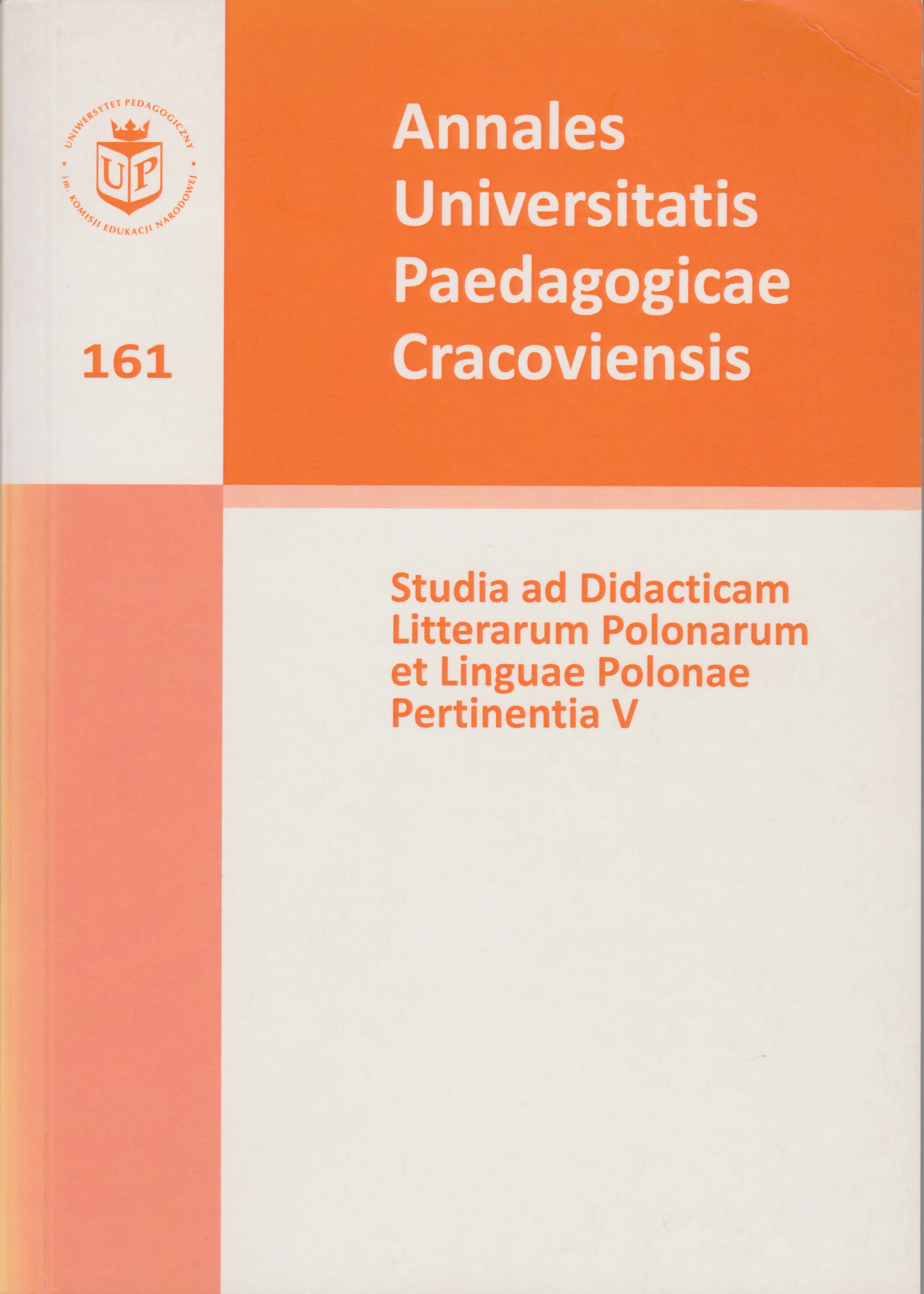Abstrakt
The authors of the article focus on analyzing students’ questionnaires in which they commented on the role of their mother tongue. More than 900 students of Kraków’s selected primary and secondary schools took part in this research. The students prefer to gain pragmatic knowledge. This knowledge means the abilities which help the students obtain good grades on tests; as a result, these skills are seen as a ticket to a better school and then a successful life (in most cases this means a well-paid job). In the students’ answers to the “usefulness” of Polish language in terms of individual development of children and young people, the didactic aspect of literary, linguistic and cultural content turned out to be of marginal significance. The students do not appreciate the value of learning native language as a means to self-exploration in terms of axiology. They do, however, realize the usefulness of linguistic learning in developing communicative skills (in most cases it is related to one’s ability to communicate with other people). The opinions of the primary and secondary school students are crucial analytic material for contemporary debates on strengthening the role of native language in the school education system. The opinions and assessments derived from educational experiences show lack of a deeper agreement between the discourse of Polish studies didactics and school practice aimed at accomplishment of educational targets.
Key words: questionnaires, empirical research, Polish studies education, literary and cultural education, language training
Bibliografia
Kopczyński O., O duchu języka polskiego przez O.K., [w:] „Roczniki Towarzystwa Warszawskiego Przyjaciół Nauk”, t. IV, Warszawa 1807, s. 193-194.
##plugins.generic.googleScholarLinks.settings.viewInGS##
Komisja Edukacji Narodowej, pisma Komisji i o Komisji; wybór źródeł, zebrał i opracował Stanisław Tync, Wrocław1954.
##plugins.generic.googleScholarLinks.settings.viewInGS##
Szyszkowski W., Walka o język polski w szkołach KEN. „Rocznik Naukowo-Dydaktyczny WSP w Krakowie. Historia i teoria nauczania języka polskiego”, Kraków 1962, z. 12, s. 3-40.
##plugins.generic.googleScholarLinks.settings.viewInGS##
Bartnicka K., Wychowanie patriotyczne w Szkołach Komisji Edukacji Narodowej, wyd. 2, Warszawa 1998.
##plugins.generic.googleScholarLinks.settings.viewInGS##
Potulicka E. i Rutkowiak J., Neoliberalne uwikłania edukacji, Kraków 2010.
##plugins.generic.googleScholarLinks.settings.viewInGS##
Janus-Sitarz A., Przywrócić czytelnika literaturze. Szkolne strategie lektury wobec „stanu nieczytania”, w: Kompetencje nauczyciela polonisty we współczesnej szkole, red. E. Bakowska i A. Mikołajczuk, Warszawa 2006.
##plugins.generic.googleScholarLinks.settings.viewInGS##
Szkolne spotkania z literaturą, red. A. Janus-Sitarz, Kraków 2007.
##plugins.generic.googleScholarLinks.settings.viewInGS##
Twórczość i tworzenie w edukacji polonistycznej, red. A. Janus-Sitarz, Kraków 2012.
##plugins.generic.googleScholarLinks.settings.viewInGS##
Myrdzik B., Zrozumieć siebie i świat. Szkice i studia o edukacji polonistycznej, Lublin 2006.
##plugins.generic.googleScholarLinks.settings.viewInGS##
Myrdzik B., Rola hermeneutyki w edukacji polonistycznej, Lublin 1999.
##plugins.generic.googleScholarLinks.settings.viewInGS##
Kłakówna Z. A. , Przymus i wolność. Projektowanie procesu kształcenia kulturowej kompetencji. Język polski w klasach IV-VI szkoły podstawowej, w gimnazjum i liceum, Kraków 2003.
##plugins.generic.googleScholarLinks.settings.viewInGS##

